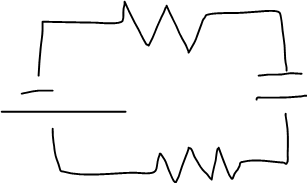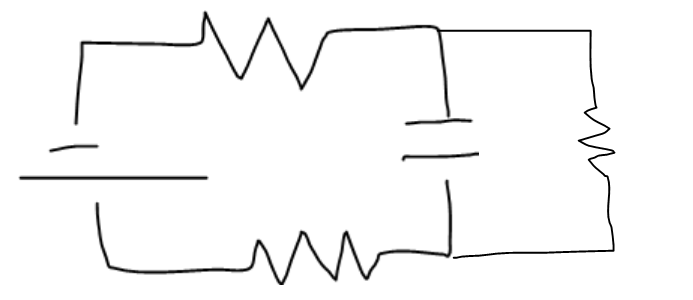If I were to have a RC current with multiple resistors but placed at different locations (following examples), would the voltage across the capacitor once it is fully charged always be equal to the voltage of the battery?
Picture 1:
Picture 2
I'm not very sure about this but this is my thinking process: As the capacitor charges and therefore the voltage increases, the current will continuously decrease to the point where eventually the voltage drops across each resistor are negligible and from KVL, we then have the voltage of the capacitor equal to the voltage of the battery for both picture 1 and picture 2 (Please correct if I'm wrong)
More confusion arises if I add a resistor in parallel, will the voltage across the capacitance be equal to the battery or will it be equal to the voltage in the branch with the resistor?
My thinking is that if I add a resistor in parallel the voltage across the capacitor will be equal to the voltage through the branch as in parallel, voltage is equal in each branch. (Please correct/confirm)



